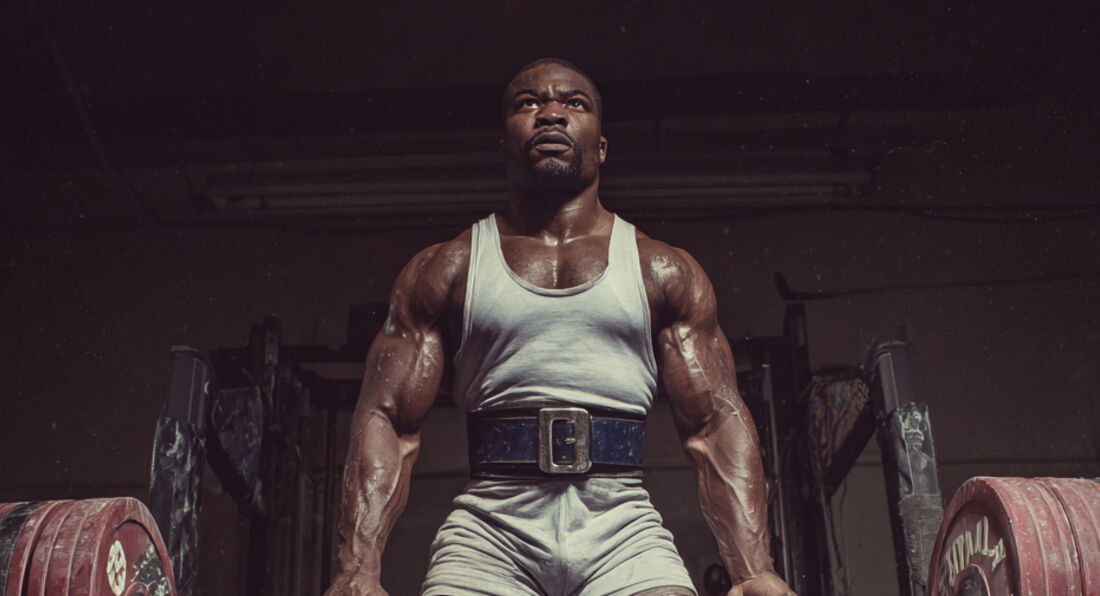The Knowledge > Bizarre >
Sunday, 23rd July 2023
Denise Rutkowski
Inspiration and caution
By LA Muscle on 23.07.2023 11:03 am
Denise Rutkowski AKA The Golden Panther, a woman who stood shoulder-to-shoulder in a dominantly male profession, is a name that echoes in the annals of bodybuilding history. Born on January 27, 1961, in Fort Worth, Texas, Denise embarked on an exceptional journey that saw her rise to stardom, battle personal struggles, and become a source of intrigue for bodybuilding enthusiasts worldwide.
 Early Life and the Road to Bodybuilding
Early Life and the Road to Bodybuilding
Rutkowski was brought up in a traditional family, where she nurtured her love for sports from an early age. An athlete throughout her school years, she competed in various disciplines, including track and field. Post high school, Denise decided to channel her athletic abilities into the world of bodybuilding.
Her first brush with professional bodybuilding came in the late 1980s. She quickly found her footing in the industry and began training intensively, showing incredible dedication to her craft.
Bodybuilding Success
Rutkowski's hard work started to pay off. In 1991, she finished second at the Ms. Olympia contest, which was the highest title in professional female bodybuilding. This was no small feat, considering it was only her second professional competition. The next year, she won the USA Championship, which marked the peak of her bodybuilding career.
Denise's remarkable physique and success drew global attention. She was admired for her symmetry and definition, her large muscle mass balanced with aesthetic appeal, an embodiment of the “perfect” female bodybuilder at the time.
Life After Bodybuilding
Despite her meteoric rise, Rutkowski's career in bodybuilding was relatively brief. In 1993, she chose to leave the sport behind. The reasons for her departure were never made public, adding to the air of mystery around her. Following her bodybuilding career, she embarked on a series of career changes. She sought education in the Christian ministry, becoming an ordained minister, and worked with substance abuse counselling.

Personal Struggles and Controversy
Rutkowski's life took a drastic turn when she began struggling with mental health issues and substance abuse. It was reported that she had developed schizophrenia and bipolar disorder, and these diagnoses led her to frequent run-ins with the law.
Her changing physical appearance became a topic of concern and curiosity. Photos of her arrested in 2012, looking drastically different from her bodybuilding days, created a buzz in the media. Her struggles highlighted the often overlooked issue of mental health and substance abuse among professional athletes. She looked unrecognisable even with a goatie beard!
Legacy
Despite the ups and downs of her life, Denise Rutkowski's impact on bodybuilding is undeniable. Her success brought a fresh narrative to the sport, challenging and pushing the boundaries of what was deemed possible for female bodybuilders. Her physique and achievements continue to inspire those venturing into the world of bodybuilding.
Yet, Denise's story is also a cautionary tale. The pressure to maintain a certain physical standard and the stress of professional sports can take a heavy toll on athletes' mental health. Denise's struggles are a stark reminder that more needs to be done to support athletes both during and after their careers.
The story of Denise Rutkowski serves as a potent mix of inspiration, caution, and awareness. Her journey from an ambitious bodybuilder to an ordained minister grappling with personal issues offers crucial lessons for society, especially for the bodybuilding community. While she remains one of the most notable names in female bodybuilding history, her tale reminds us of the necessity of maintaining balance and mental wellbeing alongside physical fitness.





























